Health Tips for Managing Stress with Diabetes
The Intertwined Nature of Stress and Diabetes
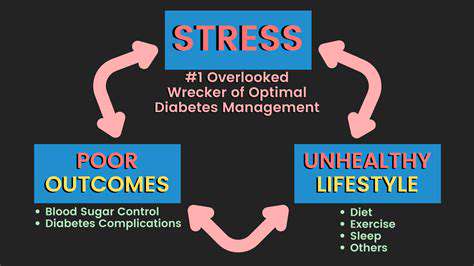
Understanding the Physiological Response to Stress
When we encounter stress, our bodies activate an intricate biological alarm system that has evolved over millennia. This survival mechanism, though often maligned, serves a vital protective function in acute situations. Hormones like cortisol and adrenaline flood our system, sharpening focus and preparing muscles for action. While invaluable for escaping predators in prehistoric times, this response becomes problematic when triggered too frequently in our modern sedentary lives.
Our physiology demonstrates remarkable adaptability in handling various stressors. Yet when the stress response remains continuously engaged, it begins exacting a heavy toll on multiple bodily systems, gradually eroding both physical vitality and mental equilibrium.
The Psychological Impact of Chronic Stress
Persistent stress creates a cascade of neurological changes that can fundamentally alter brain chemistry. Research confirms that prolonged stress exposure significantly elevates risks for mood disorders including clinical depression and generalized anxiety disorder. The constant hormonal surges disrupt neurotransmitter balance, impairing emotional regulation and cognitive processing. Many individuals report feeling mentally foggy or emotionally volatile during extended stressful periods.
Memory formation and recall often suffer under chronic stress, with studies showing shrinkage in the hippocampus - the brain's memory center. This cognitive impairment can create professional challenges and academic difficulties, compounding the original stressors.
Stress and Physical Health Connections
The body manifests stress in surprisingly concrete ways. Extended stress exposure demonstrably weakens immune defenses, leaving individuals vulnerable to frequent illnesses and slower recovery times. Medical imaging reveals that chronic stress accelerates cellular aging and contributes to systemic inflammation - a known precursor to numerous diseases.
Many patients first recognize their stress levels through physical symptoms like tension headaches, digestive disturbances, or unexplained muscle pain. These somatic manifestations serve as important warning signs that the body's stress response has become dysregulated.
The Role of Social Support in Managing Stress
Human connection functions as a powerful antidote to stress's corrosive effects. Studies of social networks reveal that individuals with strong relational ties demonstrate greater stress resilience. The simple act of sharing burdens with empathetic listeners activates neurological pathways that counteract stress hormones.
Quality relationships provide both emotional sanctuary and practical assistance during challenging periods. Social isolation, conversely, amplifies stress's negative impacts, creating a vicious cycle of worsening mental and physical health.
Lifestyle Strategies for Stress Reduction
Building stress resilience requires a multipronged approach addressing both mind and body. Consistent physical activity, particularly outdoors, helps metabolize stress hormones while boosting endorphins. Nutritional choices significantly influence stress responses, with certain foods either exacerbating or mitigating physiological tension.
Mind-body practices like tai chi or progressive muscle relaxation teach the nervous system to shift from fight-or-flight to rest-and-digest mode. Establishing consistent sleep routines proves equally vital, as sleep deprivation dramatically lowers stress tolerance.
Seeking Professional Help for Persistent Stress
When self-management strategies prove insufficient, professional intervention becomes crucial. Cognitive-behavioral therapy has demonstrated particular effectiveness in helping individuals reframe stress responses and develop adaptive coping skills. In some cases, temporary pharmacological support may help recalibrate overwhelmed nervous systems.
Early intervention prevents stress from evolving into more serious conditions. Mental health professionals can provide personalized tools and objective perspectives that friends and family may lack.
The Importance of Recognizing and Addressing Stressors
Effective stress management begins with honest self-assessment. Maintaining a stress journal helps identify patterns and triggers that might otherwise go unnoticed. Many people discover their greatest stressors stem from perfectionism, people-pleasing tendencies, or unrealistic expectations.
Strategic stress reduction involves both eliminating unnecessary stressors and building capacity to handle unavoidable challenges. This dual approach creates sustainable improvements in overall wellbeing.

Stress-Reduction Techniques Tailored for Diabetics
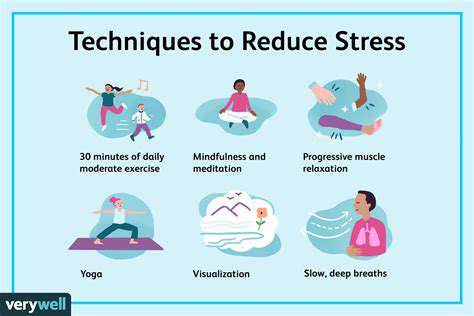
Breathing Exercises for Stress Relief
Conscious breathing practices offer immediate stress relief with zero equipment required. Deliberate slow breathing stimulates the vagus nerve, triggering the body's natural relaxation response within minutes. The 4-7-8 technique (inhale for 4 counts, hold for 7, exhale for 8) proves particularly effective for lowering blood pressure and cortisol levels. These portable techniques can be practiced discreetly during stressful meetings or before medical procedures.
Regular breathing practice literally rewires stress responses over time. Studies show consistent practitioners develop greater emotional regulation and recover faster from stressful events. Even brief sessions accumulate benefits, making this one of the most accessible stress-management tools available.
Mindfulness and Meditation Practices
Mindfulness cultivates nonjudgmental awareness of present-moment experiences. This mental stance creates space between stimuli and reactions, preventing automatic stress responses. Regular practitioners report decreased rumination and increased ability to handle challenging situations calmly.
By observing thoughts as passing mental events rather than absolute truths, individuals gain freedom from stress-inducing thought patterns. Simple practices like mindful eating or walking meditation integrate easily into daily routines, making mindfulness practical for busy schedules.
Physical Activity and Exercise
Movement serves as nature's stress antidote, burning off excess stress hormones while stimulating feel-good neurotransmitters. For diabetics, the glucose-regulating benefits compound exercise's stress-reducing effects. Gentle activities like swimming or cycling often work best for those new to exercise or managing health conditions.
The key lies in finding enjoyable activities that become self-reinforcing habits. Consistency matters far more than intensity when using exercise for stress management. Even short activity breaks throughout the day provide cumulative stress-relief benefits.
Healthy Lifestyle Choices for Stress Management
Holistic stress reduction requires addressing multiple lifestyle factors simultaneously. Sleep quality dramatically influences stress resilience, with poor sleep exacerbating stress responses. Dietary choices either fuel or fight inflammation - a key component of stress physiology.
Social connectivity remains one of the most potent yet overlooked stress buffers. Regular positive social interactions trigger oxytocin release, counteracting stress hormones. Simple pleasures like shared meals or walks combine social connection with other stress-reducing elements.
Read more about Health Tips for Managing Stress with Diabetes
Hot Recommendations
-
*Guide to Managing Gout Through Diet
-
*Best Habits for Financial Well being
-
*How to Build a Routine for Better Mental Health
-
*How to Eat Healthy on a Budget [Tips & Meal Ideas]
-
*Guide to Practicing Self Acceptance
-
*How to Incorporate More Movement Into Your Day
-
*Guide to Managing Chronic Pain Naturally
-
*Guide to Building a Reading Habit for Well being
-
*Top 5 Weight Loss Supplements That Actually Work
-
*Best Exercises for Postpartum Recovery [Beyond Abdominal Work]
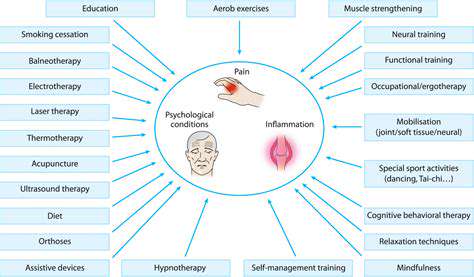
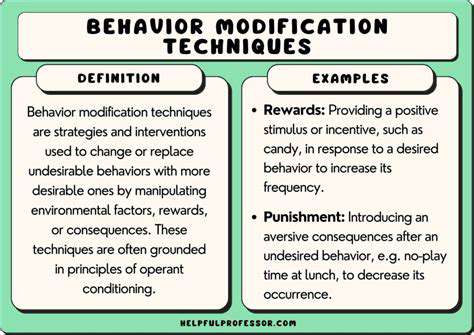



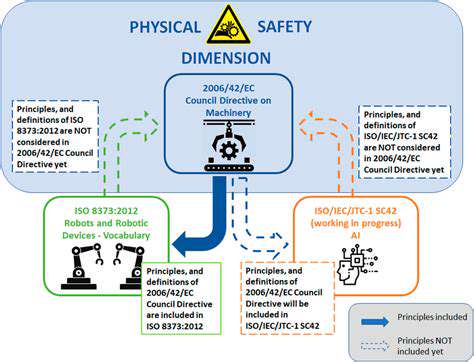
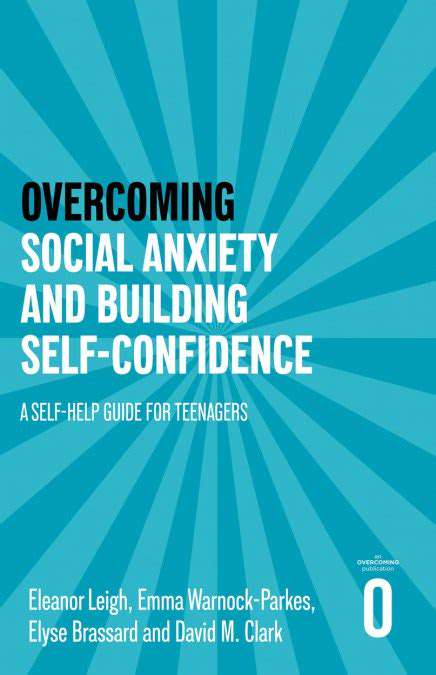

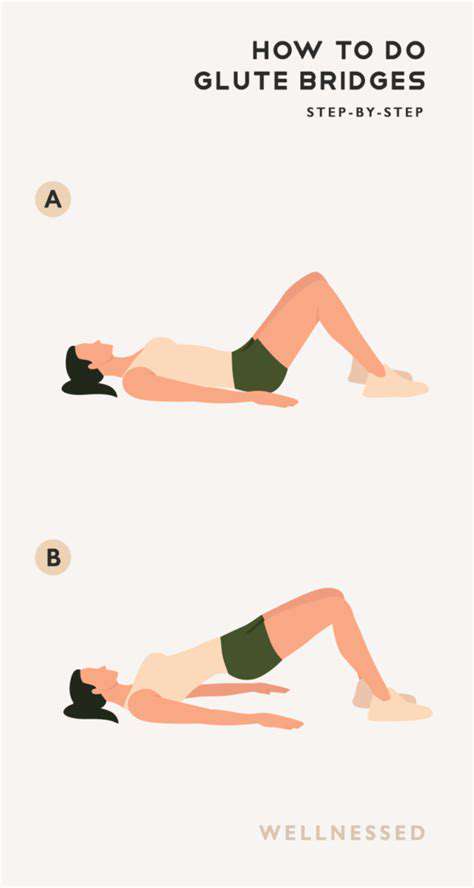
![Best Books on Mental Health and Well being [Recommended Reads]](/static/images/26/2025-05/CultivatingSelf-CompassionandPositiveSelf-Talk.jpg)
